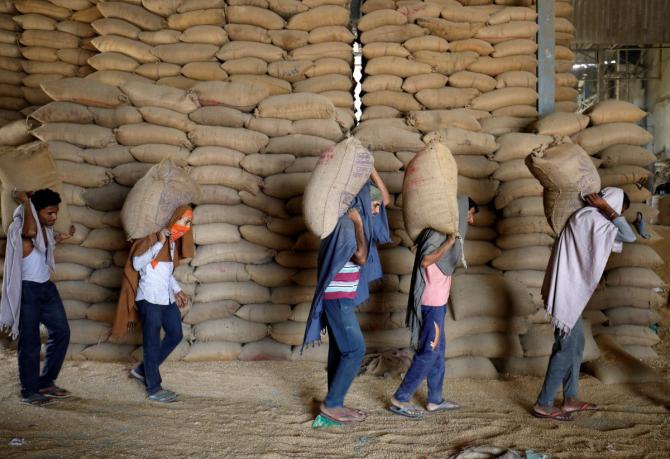Ahead of the seven-phase Lok Sabha elections, keeping food prices under check has emerged as one of the topmost priorities for the government.

Food prices would likely have a bearing on the preferences of voters.
In the past, there have been instances when governments have been voted out over rising food inflation.
For a year now, the Centre has announced a series of measures to check food prices like export bans, allowing duty-free imports of most pulses and edible oils until March 2025, stopping diversion of sugarcane juice for making ethanol to conserve the sweetener for domestic consumption, among others.
The government is also simultaneously selling packaged wheat, rice, atta (wheat flour), gram dal under the ‘Bharat’ brand to make sure food items are available at affordable prices.
Liquidation of public stocks of wheat and rice has also been taken up to cool down rates.
However, going forward, most experts said that inflation management in the coming months will depend on how the rabi harvest comes through and the vagaries of weather.
Excessive and sudden rise in temperature between April and June could also play a part in pushing up prices, particularly of vegetables and perishable food items.
The good news is that so far, all indications hint that the 2024 southwest monsoon could be ‘normal’ as El Niño is waning and ‘La Niña’ is about to set in.












 © 2025
© 2025